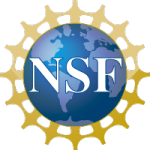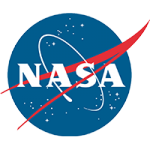The 2014 OCB Summer Science Workshop was held July 22-25, 2013 at the Woods Hole Oceanographic Institution in Woods Hole, MA.
1. Plenary Sessions
Narrowing in on key biological carbon fluxes: Estimates, approaches, and uncertainties
Chairs: Ricardo Letelier, Craig Carlson
This session will focus on producing best estimates of critical carbon fluxes (e.g., net community production, or NCP) derived from measurements made via satellite, autonomous platforms, and shipboard biogeochemical time-series. Speakers in the session will discuss statistical estimates of flux uncertainties and discrepancies in methods, underlying sources of variability such as sampling and analytical methods, physical transport, and different assumptions regarding the basic cycling of associated tracers (e.g., gas exchange rates). Confirmed speakers for this session include Ken Johnson (MBARI), Rachel Stanley (WHOI), Paul Quay (UW), Matt Church (U. Hawaii), and Dave Siegel (UCSB).
Evolutionary responses of plankton to climate change
Chair: Tatiana Rynearson, David Hutchins
Climate change is expected to alter many aspects of the planktonic environment. This session will examine the potential of marine plankton to evolve in response to these changes and explore how evolutionary changes may influence community structure and biogeochemical cycling. Presentations will include perspectives on the evolutionary potential and responses of cyanobacteria, protists and metazoans to climate change. Confirmed speakers for this session include Tatiana Rynearson (URI), Carol Lee (Univ. of Wisconsin), Sinead Collins (Univ. of Edinburgh), Elena Litchman (Michigan State Univ.) and Dave Hutchins (Univ. of Southern California).
Trace element-biota interactions
Chair: Mak Saito
In addition to major elements such as carbon, nitrogen, phosphorus, and silicon, the productivity and species composition of marine phytoplankton communities are strongly influenced by trace metals such as iron, zinc, cobalt, manganese, copper, and cadmium. Conversely, phytoplankton directly affect the distribution, speciation, and bioavailability of these metals. The GEOTRACES Program has provided tremendous insight into the distribution, sources, and sinks of trace metals in the ocean. This session will focus on interactions between trace metal nutrients and phytoplankton in the ocean, including the roles of key micronutrients in various biological functions. Confirmed speakers for this session include Mark Moore (Southampton), Kathy Barbeau (SIO), Seth John (USC), Mak Saito (WHOI), and Adrian Marchetti (UNC).
Southern Ocean processes
Chairs: Jorge Sarmiento, Kendra Daly
The Southern Ocean undergoes natural fluctuations in biogeochemical cycling over a wide range of spatiotemporal scales, and is also responding in measurable ways to the atmospheric increase in CO2 and the ozone hole, but the associated mechanisms of response are poorly quantified. Major changes are also occurring in Southern Ocean food webs, which have direct effects on key species and indirect impacts throughout the food web, and the consequences of these for carbon and biogeochemical cycling and biological production are unknown. This session will focus on the challenges that we face in our understanding of Southern Ocean physical, biogeochemical, and ecosystem processes in response to current and future climate. Confirmed speakers for this session include Mike Meredith (BAS), Nicole Lovenduski (Univ. Colorado), Kevin Arrigo (Stanford Univ.), Eileen Hofmann (ODU), and Hugh Ducklow (LDEO).
2. Agenda with Talks and Webcast Footage
Monday July 22, 2013
8:30 Welcome and introduction (K. Daly, Univ. of South Florida, Heather Benway, Woods Hole Oceanographic Inst.) (Recording: Quicktime, webm)
Session 1. Narrowing in on key biological carbon fluxes: Estimates, approaches, and uncertainties
Chairs:Ricardo Letelier (Oregon State Univ.), Craig Carlson (Univ. California, Santa Barbara)
8:40 Net community production, carbon export and nutrient supply at ocean time-series sites: Should we expect consensus? Should fluxes agree? (Kenneth Johnson, Monterey Bay Aquarium Research Inst.) (Recording: Quicktime, webm)
9:25 Estimates of rates of biological productivity at BATS: Is there convergence? (Rachel Stanley, Woods Hole Oceanographic Inst.) (Recording: Quicktime, webm)
10:00 In situ methods measuring primary production and net community production: What are we learning? (Paul Quay, Univ. Washington) (Recording: Quicktime, webm)
11:00 25 years of Hawaii Ocean Time-series carbon flux determinations: Insights into productivity, export, and nutrient supply in the oligotrophic ocean (Matthew Church, Univ. Hawaii) (Recording: Quicktime, webm)
11:35 Global assessment of ocean carbon export using food-web models and satellite observations (David Siegel, Univ. California, Santa Barbara) (Recording: Quicktime, webm)
12:10 Panel discussion (Recording: Quicktime, webm)
12:40 Lunch (Fenno lawn, under tent) (60-minute Group 1 BCO-DMO tutorial begins at 13:10)
14:10 EXPORTS – Planning a NASA Field Campaign to Improve the Predictability of the Ocean’s Biological Pump (David Siegel, Univ. California, Santa Barbara) (Recording: Quicktime, webm)
14:30 Reports on recent OCB and partner activities
- GEOMICS Workshop (Ginger Armbrust, Univ. Washington) (remote ppt) (Recording: Quicktime, webm)
- International Time-Series Methods workshop (Heather Benway, Woods Hole Oceanographic Inst.) (partner activity with IOCCP, IOC-UNESCO) (Recording: Quicktime, webm)
15:15 Student presentations (Recording: Quicktime, webm)
17:00 Poster session and reception (Clark 2 foyer)
Tuesday July 23, 2013
Session 2. Evolutionary responses of plankton to climate change
Chairs: Tatiana Rynearson (Univ. Rhode Island), David Hutchins (Univ. Southern California)
8:30 Evolution in the plankton: A few ecological and biogeochemical implications (Tatiana Rynearson, Univ. Rhode Island) (Recording: Quicktime, webm)
8:50 Eco-evolutionary responses of phytoplankton communities to global change (Elena Litchman, Michigan State Univ.) (Recording: Quicktime, webm)
9:30 Exploring the evolutionary consequences of long-term selection by elevated CO2 in Trichodesmium (David Hutchins, Univ. Southern California) (Recording: Quicktime, webm)
10:10 Plastic Fantastic: Linking plastic and evolutionary responses (Sinead Collins, Univ. Edinburgh) Video not available
11:20 Rapid evolution in response to habitat change (Carol Lee, Univ. Wisconsin) Video not available
12:00 Panel discussion
12:30 Lunch (Fenno lawn, under tent) (60-minute Group 2 BCO-DMO tutorial begins at 12:50)
Session 3. Trace element-biota interactions
Chair: Mak Saito (Woods Hole Oceanographic Inst.)
13:45 Towards the reconciliation of trace metal demand and supply (C. Mark Moore, Univ. Southampton) (Recording: Quicktime, webm)
14:30 Interpreting iron speciation and bioavailability in the marine environment from microbial genetics (Kathy Barbeau, Scripps Inst. of Oceanography) (Recording: Quicktime, webm)
15:05 Equilibrium vs. kinetics: What controls dissolved Fe concentrations and isotopes in the ocean? (Seth John, Univ. South Carolina) (Recording: Quicktime, webm)
15:40 Break (coffee and posters)
16:00 Distribution of nutrient stress biomarkers and metalloenzymes in the Pacific Ocean (Mak Saito, Woods Hole Oceanographic Inst.) (Recording: Quicktime, webm)
16:35 Molecular insights from diatoms living in iron-deprived oceans: Individual genes to community transcriptomics (Adrian Marchetti, Univ. North Carolina) (Recording: Quicktime, webm)
17:10 Panel discussion (Recording: Quicktime, webm)
17:40 Adjourn for day
18:30-21:00 Workshop dinner (Fenno lawn, under tent)
Wednesday July 24, 2013
Session 4. Southern Ocean Processes
Chairs: Kendra Daly (Univ. of South Florida), Jorge Sarmiento (Princeton Univ.)
8:30 Introductory remarks and announcements (Jorge Sarmiento, Princeton Univ.) (Recording: Quicktime, webm)
8:45 Southern Ocean circulation and climate: Recent changes and future priorities (Michael Meredith, British Antarctic Survey) (Recording: Quicktime, webm)
9:30 Southern Ocean ecosystems: Net, new and export production – which is which? (Hugh Ducklow, Lamont-Doherty Earth Observatory) (Recording: Quicktime, webm)
10:15 Break (coffee and posters)
10:45 Primary productivity in a changing Southern Ocean (Kevin Arrigo, Stanford Univ.) (Recording: Quicktime, webm)
11:20 Carbon in the Southern Ocean: Known knowns and known unknowns (Nicole Lovenduski, Univ. Colorado) (Recording: Quicktime, webm)
11:55 Student presentations
12:10 Lunch (60-minute Group 3 BCO-DMO tutorial begins at 12:40)
13:40 Productivity and linkages in Southern Ocean food webs: Comparisons and implications (Eileen Hofmann, Old Dominion Univ.) (Recording: Quicktime, webm)
14:15 Panel discussion (Recording: Quicktime, webm)
14:45 Fukushima ocean impacts (Ken O. Buesseler, Woods Hole Oceanographic Inst.) (Recording: Quicktime, webm)
15:30-17:30 Poster session with refreshments (Clark 2 foyer)
17:15 Program Managers Research Funding Panel (Carriage House, for students, postdocs)
Thursday July 25, 2013
8:30 Agency updates
9:30 Update on the NACP/OCB Coastal Synthesis Activities (Paula Coble, Univ. South Florida) (Recording: Quicktime, webm)
10:00 Break
10:30 Partner Program Activities and Updates
- Future Earth Initiative, IMBER, SOLAS, EuroBasin (E. Hofmann, Old Dominion Univ.) (30 mins.) (Recording: Quicktime, webm)
- IOCCP (L. Lorenzoni, Univ. South Florida) (15 mins.) (Recording: Quicktime, webm)
- NSF EarthCube Ocean Ecosystem Dynamics workshop (D. Kinkade, Woods Hole Oceanographic Inst.) (15 mins.) (Recording: Quicktime, webm)
U.S. CLIVAR/OCB Joint Working Group Updates (15 mins. each)
- Ocean Carbon Uptake (S. Doney, Woods Hole Oceanographic Inst.) (Recording: Quicktime, webm)
- Southern Ocean Heat and Carbon Uptake (J. Russell, University of Arizona) (Recording: Quicktime, webm)
12:00 Adjourn (Recording: Quicktime, webm)
12:00 Lunch (Fenno lawn, under tent)
13:00 OCB Scientific Steering Committee (SSC) meeting (OCB SSC members and agency representatives)
3. Poster Information
Poster Sessions
- Narrowing in on key biological carbon fluxes: Estimates, approaches, and uncertainties
- Trace element-biota interactions
- Southern Ocean processes
- Evolutionary responses of plankton to climate change
2013 OCB Workshop Full Abstracts
2013 OCB Workshop Abbreviated Poster List
4. Participant Information
2013 OCB Workshop Participant List
2013 Workshop Sponsors





